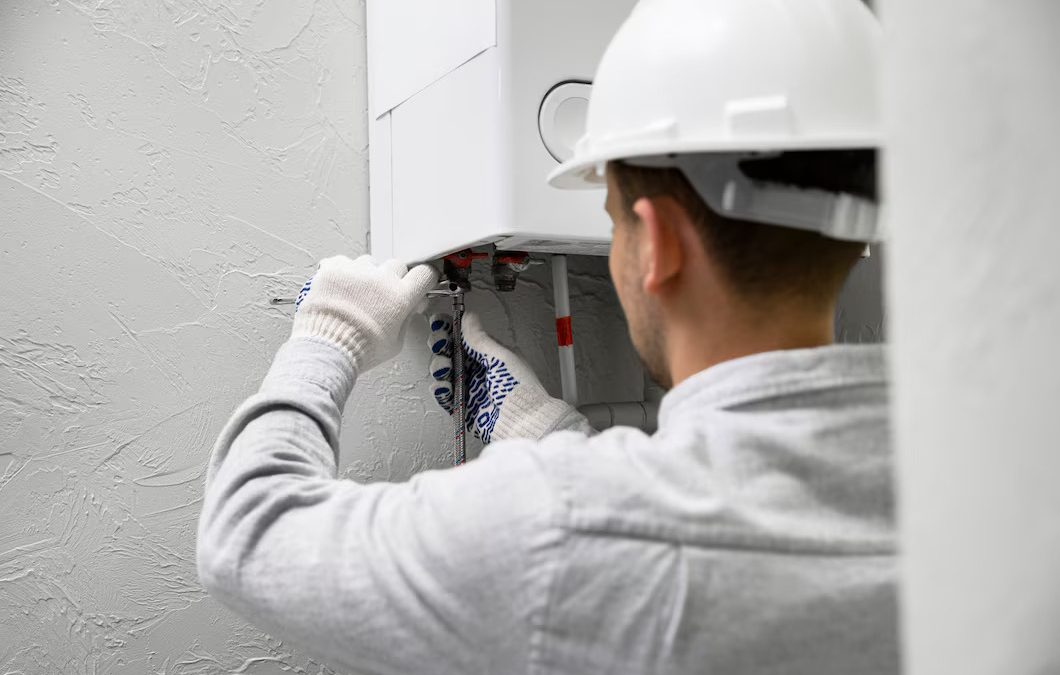A reliable water heater is essential for keeping your home or business running smoothly. From taking warm showers to conducting daily operations, hot water plays a crucial role. However, water heaters don’t last forever, and knowing when yours is failing can prevent disruptions and costly damages.
You might notice signs like inconsistent water temperature, strange noises, or a sudden increase in your energy bills. These are indications that your water heater might be nearing the end of its life. Addressing these issues early can save you from unexpected cold showers and potential water damage.
When your water heater starts to fail, you may wonder whether to repair it or invest in a new one. Understanding the benefits of upgrading can help you make an informed decision. It’s important to choose a water heater that fits your specific needs, ensuring you have a reliable source of hot water for years to come. Let’s find out what to look for when your water heater isn’t performing as it should.
Signs Your Water Heater Is Failing
Recognizing the signs of a failing water heater can prevent bigger problems down the line. One of the first clues is inconsistent water temperature. If you notice your water fluctuating between hot and cold without adjusting the tap, it could mean your water heater is struggling to maintain a consistent temperature. This inconsistency often points to issues like a faulty thermostat or a problem with the heating element.
Another sign to watch for is strange noises coming from your water heater. Sounds like popping, banging, or rumbling can indicate a buildup of sediment inside the tank. As the sediment heats up, it bursts and causes these noises. Over time, this sediment buildup can reduce the efficiency of your water heater and lead to more serious damage. Additionally, if you spot any rusty water, this can be a warning sign of corrosion inside your water heater tank, indicating that it might be time for a replacement.
Comparing Repair Costs to Replacement Costs
When deciding whether to repair or replace your water heater, it’s important to compare the costs involved. Repairs may seem cheaper upfront, but if your water heater is old and requires frequent fixes, those costs can add up quickly. You should consider the age of your water heater; units older than 10-15 years are more likely to face significant problems and might not be worth the cost of continuous repairs.
On the other hand, replacing your water heater comes with an upfront cost but can save you money in the long run. Newer models are more energy-efficient, which can reduce your monthly utility bills. They also come with warranties that protect you from unexpected repair costs for several years. Weighing these factors can help you make an informed decision about whether to repair your existing unit or invest in a new one.
Signs Your Water Heater Is Failing
Recognizing the early signs of a failing water heater can prevent a small problem from turning into a costly nightmare. One common sign is inconsistent water temperature. If you notice that your water isn’t as hot as it used to be, or if it varies drastically between usages, the water heater may have an internal issue. Sediment build-up in the tank is often the culprit, reducing efficiency and making it harder for the heater to maintain a consistent temperature.
Another key indicator is strange noises coming from the tank. Popping or rumbling sounds often signal that sediment has hardened and is causing the unit to work harder than necessary. Additionally, if you spot water pooling around the base of the water heater or notice rust on the tank or in the water itself, there’s a clear sign something is amiss. These issues suggest a leak or corrosion, which could mean your water heater is on its last legs.
Comparing Repair Costs to Replacement Costs
When your water heater starts showing signs of failure, you need to consider whether to repair or replace it. Repairing a water heater can sometimes be a quick fix, especially for minor issues like a faulty thermostat or heating element. These repairs are generally affordable and can extend the life of your unit for a few more years. However, frequent repairs may add up and become less cost-effective over time.
On the other hand, replacing an old water heater with a new one can be a more financially sound decision in the long run. Newer models tend to be more energy-efficient, which can save you money on utility bills. While the upfront cost of a new water heater is higher, the benefits of improved performance and reliability can outweigh the initial expense. We recommend evaluating the age of your current unit, the frequency of required repairs, and the potential savings from a more efficient model when making your decision.
Conclusion
Understanding the signs of a failing water heater and weighing the costs of repair versus replacement can save you from unexpected disruptions and expenses. Keeping an eye on your water heater’s performance—like consistent water temperatures and absence of leaks or rust—can help you make informed decisions about maintenance or upgrades. Investing in a new, efficient water heater not only ensures a steady supply of hot water but also provides long-term savings and peace of mind.
At Midlothian Plumbing, our goal is to help you maintain a safe and efficient home. If you’re noticing any signs that your water heater might be failing, or if you’re considering an upgrade, contact us for expert advice and service. Let Midlothian Plumbing assist you with all your water heater needs to ensure you have a reliable and efficient system year-round. If you think you need a replacement water heater, get in touch with us.


